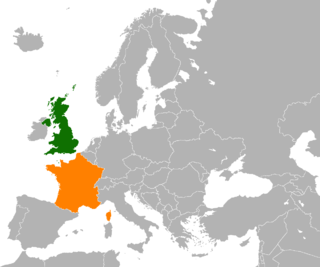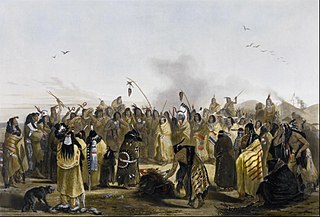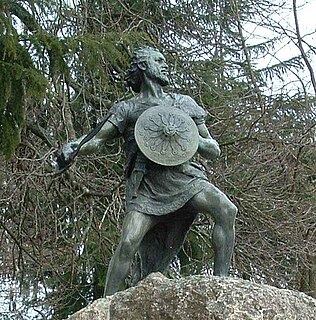 W
W W
WThe Etruscans, like the contemporary cultures of Ancient Greece and Ancient Rome had a persistent military tradition. In addition to marking the rank and power of certain individuals in Etruscan culture, warfare was a considerable economic boon to Etruscan civilization. Like many ancient societies, the Etruscans conducted campaigns during summer months; raiding neighboring areas, attempting to gain territory and combating piracy as a means of acquiring valuable resources such as land, prestige goods and slaves. It is also likely individuals taken in battle would be ransomed back to their families and clans at high cost. Prisoners could also potentially be sacrificed on tombs to honor fallen leaders of Etruscan society, not unlike the sacrifices made by Achilles for Patroclus.
 W
WFrance–United Kingdom relations are the relations between the governments of the French Republic and the United Kingdom of Great Britain and Northern Ireland (UK). The historical ties between France and the UK, and the countries preceding them, are long and complex, including conquest, wars, and alliances at various points in history. The Roman era saw both areas, except Scotland, conquered by Rome, whose fortifications exist in both countries to this day, and whose writing system introduced a common alphabet to both areas; however, the language barrier remained. The Norman conquest of England in 1066 decisively shaped English history, as well as the English language. In the Middle Ages, France and England were often bitter enemies, with both nations' monarchs claiming control over France, while Scotland was usually allied with France until the Union of the Crowns. Some of the noteworthy conflicts include the Hundred Years' War and the French Revolutionary Wars which were French victories, as well as the Seven Years' War and Napoleonic Wars, from which Great Britain emerged victorious.
 W
WThis is a list of premodern wars that occurred in the Low Countries until 1560.For subsequent wars in the north, see List of wars involving the Netherlands (1560–present). For subsequent wars in the south, see List of wars in the southern Low Countries (1560–1829) List of wars involving Belgium (1830–present) List of wars involving Luxembourg (1890–present).
 W
WThis is a list of wars that occurred in the southern Low Countries between 1560 and 1829.
 W
WMedieval warfare is the European warfare of the Middle Ages. Technological, cultural, and social developments had forced a severe transformation in the character of warfare from antiquity, changing military tactics and the role of cavalry and artillery. In terms of fortification, the Middle Ages saw the emergence of the castle in Europe, which then spread to Western Asia.
 W
WMercenary life is recorded as a custom of Iron Age Spain, particularly in the central area of the Iberian peninsula. Departing from the native tribe and applying to serve in others was a way for economically disadvantaged youth to escape poverty and find an opportunity to use their fighting skills. Starting from 5th century BC, mercenary life would become a true social phenom in Hispania, with great numbers of fighters from distant lands coming to join the armies of Carthage, Rome, Sicily and even Greece, as well as other Spanish peoples.
 W
WScalping is the act of cutting or tearing a part of the human scalp, with hair attached, from the head, and generally occurred in warfare with the scalp being a trophy. Scalp-taking is considered part of the broader cultural practice of the taking and display of human body parts as trophies, and may have developed as an alternative to the taking of human heads, for scalps were easier to take, transport, and preserve for subsequent display. Scalping independently developed in various cultures in both the Old and New Worlds.
 W
WA swashbuckler is a genre of European adventure literature that focuses on a heroic protagonist stock character who is skilled in swordplay, acrobatics, guile and chivalrous ideals. A 'swashbuckler' protagonist is heroic, daring, and idealistic: he rescues damsels in distress, protects the downtrodden, and uses duels to defend his honor or that of a lady or avenge a comrade. Swashbucklers would often engage in daring and romantic adventures with bravado or flamboyance. Swashbuckler heroes are gentleman adventurers who dress elegantly and flamboyantly in coats, waistcoats, tight breeches, large feathered hats, and high leather boots, and they are armed with the thin rapiers used by aristocrats.
 W
WThis is a timeline of the main events of the Cold War, a state of political and military tension after World War II between powers in the Western Bloc and powers in the Eastern Bloc.
 W
WWarfare in ancient Iberian peninsula occupied an important place in historical chronicles, first during the Carthaginian invasion of Hispania, including the Punic Wars, and later during the Roman conquest of the peninsula. The densely bellicose character of the Pre-Roman peoples who inhabited Hispania was repeatedly shown in their conflicts against Rome, Carthage and each other.